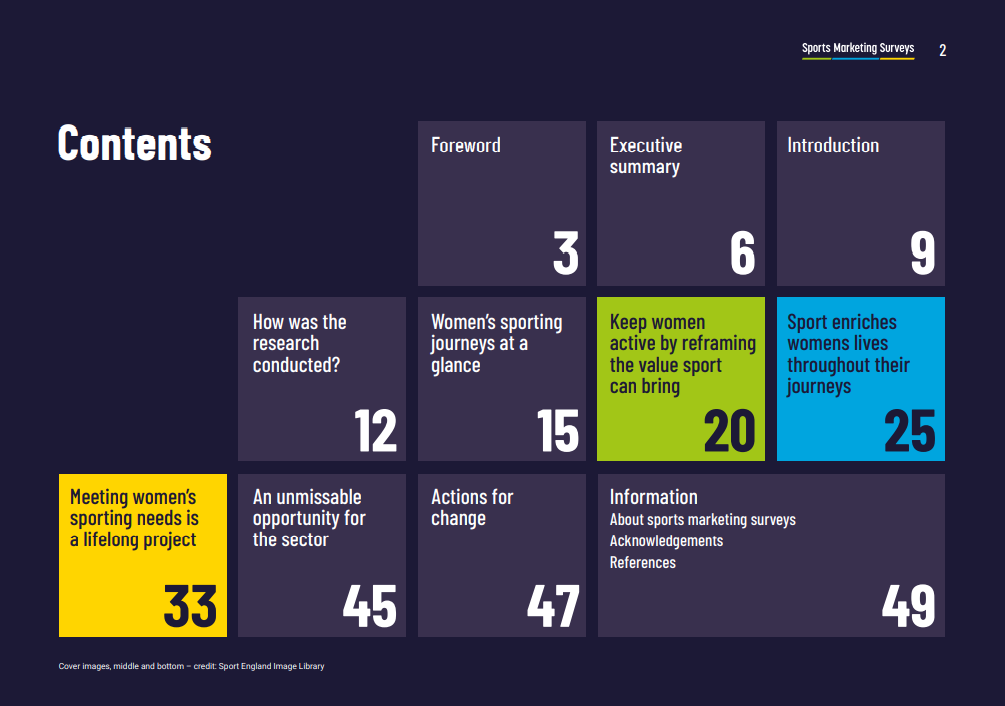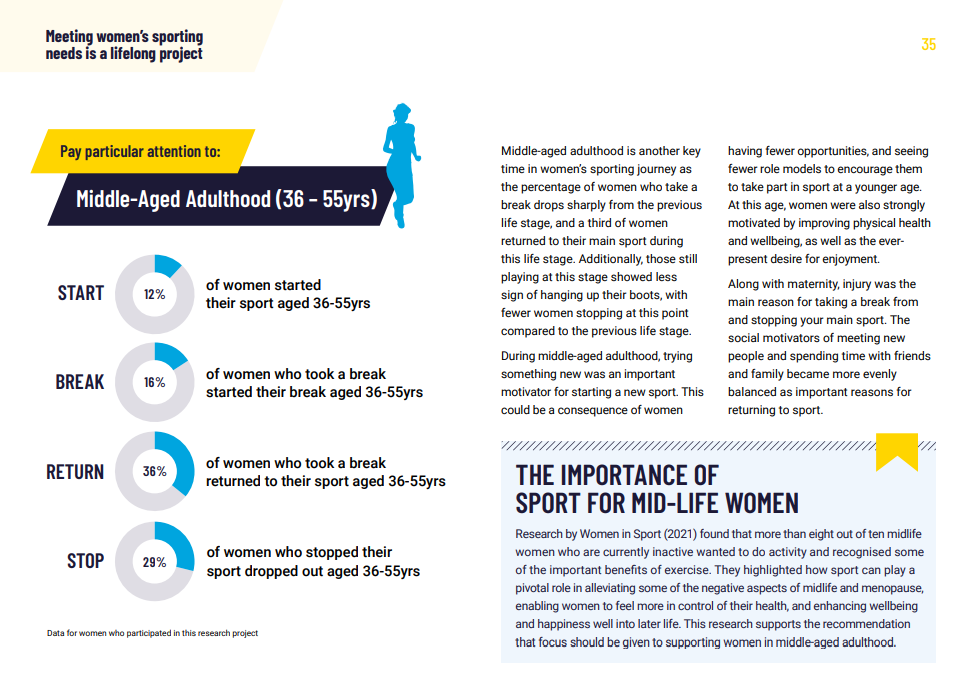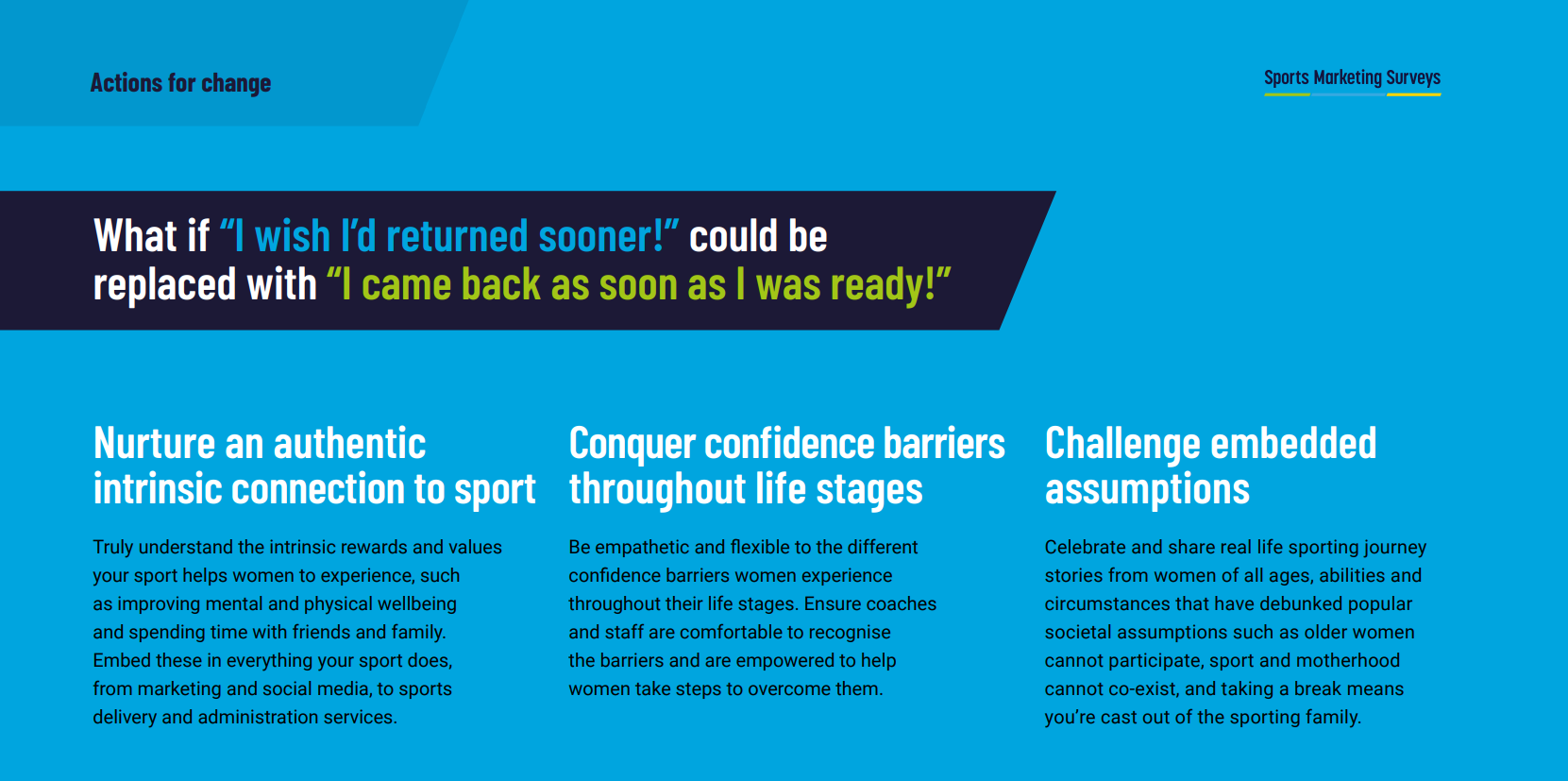A fresh report has found that 48% of women take a break from and return to their sport. This means that potentially 8.3 million women in England are likely to take a break from their main sport at some point in their sporting journey. If sports can better support women to take fewer and shorter breaks, they can significantly help more women to remain engaged in sport.
The research is the brainchild of Sports Marketing Surveys, which has been providing cutting-edge data and insight to the sports and leisure industry since 1984. The full report, which covers women taking part in a wide range of sports across England, is available as a free download from Sports Marketing Surveys’ Online Research Store.

One of the most striking findings at an overall level was that maternity, although clearly a major factor, cannot be a scapegoat for the imbalances in the number of women playing sport throughout adulthood. Instead, with many women citing a lack of time for a number of reasons, the report argues that it is the value of sport which needs to be reframed, as something that is a guilt-free, valuable activity that can help women’s mental and physical health in a huge variety of ways.
Hannah Sprake, who led the launch of the Sporting Journeys programme added:
“This research reinforces the importance of recognising that not all sporting journeys are linear. Many are squiggly or interrupted, and one thing that is clear is that sports bodies can play a key role in supporting women to navigate their own sporting journeys. They can provide a compassionate environment, help women to conquer confidence gremlins and challenge embedded societal assumptions to normalise squiggly sporting journeys. Sports can become activities for life, because while every woman’s sporting journey is different, every woman’s life can be enriched by sport.”
The report also segments key life stages where new strategies are particularly vital. 36-55 is an age where many women stop playing sport, but many others return. The report therefore examines how cries like “I wish I’d returned sooner” could be replaced with programmes that enable people to “come back as soon as I was ready.

To that end, the report identifies strategies that sports providers can put in place. In particular, it suggests:
- Ways to create compassionate environments.
- Ways to maintain the quality of activities and competitions at all levels.
- Ways to recognise the lifetime value of participants.
- Ways to make women feel that sport is for people like them.

As Sue Anstiss MBE, SMS’ special advisor for women’s sport, writes in the foreword to the report.
“There’s so much in this report that resonated with me – both professionally and personally – and I know that the findings will provide a fascinating insight for all those driving sports participation for women and girls. What I was particularly excited to see was that the research highlights the enormous positive impact of providing compassionate, welcoming environments and showcasing women of all ages and backgrounds participating. This and other results are going to be hugely significant for many sports bodies.”
To contact SMS about understanding sporting journeys and the value of grassroots sport, please contact hannah.sprake@sportsmarketingsurveys.com
Sue Anstiss’ book, Game On: The Unstoppable Rise of Women’s Sport is now available for preorder now in hardback or as an ebook.
https://www.amazon.co.uk/Game-Unstoppable-Rise-Womens-Sport-ebook/dp/B0932CCTWX/



